Introduction
In a recent perusal of the University of Pennsylvania’s call for paper website, we found a smattering of calls for submissions, both for publishing opportunities and conference presentations, relevant to the topics we engage with on this site. For all of you interested scholars, we would like to share a few of our favorites here.
Journal Articles and Book Chapters
CEA Mid-Atlantic Review
Deadline for submissions: Thursday, April 15, 2021
The CEA Mid-Atlantic Review is the official publication of the College English Association Mid-Atlantic Group and is a peer-reviewed scholarly journal published annually. We specialize in literary and cultural criticism, discussions of pedagogy, public humanities work, book reviews, personal essays concerned with the teaching of English, and creative writing related to literature or teaching. The CEA Mid-Atlantic Review believes that scholars and creative writers should be paid for their labor. Authors of published pieces will receive a $20 honorarium.
https://call-for-papers.sas.upenn.edu/cfp/2020/10/17/call-for-papers-on-writing-and-teaching-justice
Journal Special Issue – Untranslatability: Theory, Practice and Politics
JOURNAL OF COMPARATIVE LITERATURE AND AESTHETICS
(Vol. 44, No. 1, Spring 2021)
Translation is an activity that marks the differences which surface in cross-cultural encounters. It seeks to negotiate these inevitable differences to help us understand language-cultures that are (not) ours, or comprehend an ‘other’ who is (not) us. The non-negotiable differences then draw us to the titular question, “How does the pursuit of finding an equivalence fare in this process?”. It is in these gaps of translation that we encounter the untranslatable, that which cannot be comprehended or translated. Amidst the ongoing discussions around World Literature, that thrives on translation, untranslatability disrupts the presumed coherence in the very process and makes us aware of the irreducible differences latent within alternate ways of expression.
This Special Issue aims to initiate a discussion on the various tenets of Untranslatability: epistemological, semiotic and aesthetic concerns that shall enable us to understand translation; the process and it’s philosophy in a nuanced and novel manner.
https://call-for-papers.sas.upenn.edu/cfp/2020/10/14/journal-special-issue-untranslatability-theory-practice-and-politics
Special Latin American Issue of Journal of Foreign Languages and Cultures
Guest Editor: João Cezar de Castro Rocha (Full Professor of Comparative Literature at State University of Rio de Janeiro—UERJ)
We are pleased to announce the Call for Papers for the special issue of Journal of Foreign Languages and Cultures devoted to Latin America. We therefore invite scholars whose research addresses Latin American issues, in its multiple elements and vantage points, to submit articles on: Latin American history, the history of the concept of Latin America, the contemporary relationships between the local and global in the continent, Latin American literatures and the concept of world literature, Latin American visual arts and cinema, Latin American cultural and critical theories, etc.
We will welcome articles of both theoretical and historical nature.
https://call-for-papers.sas.upenn.edu/cfp/2020/10/06/special-latin-american-issue#:~:text=The%20articles%20must%20be%20written,according%20to%20the%20editorial%20rules.&text=methodologies%20embrace%20new%20forms%20of,for%20Submissions%3A%2030%20April%202021.
Journal of Foreign Languages and Cultures
Deadline for submissions: April 1, 2021
Contact email: Lramey@calstatela.edu
Published annually in June and December, Journal of Foreign Languages and Cultures is seeking essays in critical theory, literature, culture, and translation theory. The submissions deadline is October 15 for the December issue, and April 15 for the June issue. The journal’s website is: http://jflc.hunnu.edu.cn/. Submissions should use MLA style and be approximately 4,000-7,000 words. Inquiries are welcome to co-editor Lauri Scheyer at Lramey@calstatela.edu.
Female Narratives of Protest: Literary and Cultural Representations from South Asia
Deadline for submissions: Monday, February 1, 2021
Contemporary regimes of protest in South Asia are informed and injuncted by its ever shifting geopolitical modalities. With the rise of globalisation, neoliberalism and multiculturalism, South Asian geopolitics comprise a quest for redefinition of biopower and subjectivity formations. As hegemonies of Western dominance are toppled, South Asian geopolitics are evolving as a complex assemblage of biopolitics, citizenship ethics and human rights concerns. In this evolving engagement with global politics, South Asia is fast emerging as a contending power itself with competent human and capital resources. An important consequence of this is the appearance of newer axes of fault lines in terms of polity, economy, religion, culture, art, and gender.
https://call-for-papers.sas.upenn.edu/cfp/2020/10/22/female-narratives-of-protest-literary-and-cultural-representations-from-south-asia
Writing the Pandemonium: Perspectives on Pandemic Literature
Proposals for an edited book/ anthology of chapters on Pandemic Literature i.e. novels, poetry, short fiction pertaining to Pandemic Literature. The millennial pandemic Covid 19 has hit humanity with all its ferocity and frenzy and put everything in shambles. Causing mass deaths and jeopardizing world health, it has emanated a déjà vu situation whereby the memories and accounts of past pandemics appear to have resurfaced and ensnared humanity amid all the current misery and chaos. While historical accounts and statistical data have always pointed at the genesis and graphical growth of the pandemics ever since, literature has endeavoured to proffer us an honest and deeply humanistic perspective on life as it exists in the aftermath of a pandemic. Literature has been an indelible and lasting record and reflection of humanity in its entirety and has always sought to reflect the immediate socio-cultural milieu and the ailments plaguing mankind. It makes an artistic testimony of all that is both macrocosmically and microcosmically experienced by society.
- Pandemic as apocalypse• Pandemic and loss of human values/moral decline• Pandemic and politics • Pandemic and gender/ feminism• Pandemic and disability studies• Pandemic and medical humanities• Pandemic and psychology/human behaviour• Pandemic and culture• Pandemic and ecology• Pandemic and concurrent existential challenges like wars, etc• Pandemic and religion• Pandemic and crime• Pandemic and existential philosophy
https://call-for-papers.sas.upenn.edu/cfp/2020/09/19/writing-the-pandemic-perspectives-on-pandemic-literature
CFP for essays for edited collection: Crossroads of Crime Writing: Historical, Sociological and Cultural Contexts/Intersections/Perspectives
Deadline for submissions: Sunday, November 1, 2020
This volume, which will be proposed to a leading independent academic publisher, seeks to explore the implications of crime writing in its narrative forms through essays that situate orientations fictional and non-fictional, past and present in relation to public perspectives. Just as real crime has served as inspiration for fictional accounts, Kieran Dolin reminds us in Fiction and the Law that crime literature has long influenced popular understanding of social institutions as well.
https://call-for-papers.sas.upenn.edu/cfp/2020/08/11/cfp-for-essays-for-edited-collection-crossroads-of-crime-writing-historical
Third Stone Journal
Deadline for submissions: Monday, November 30, 2020
Third Stone Journal is accepting submissions of art, music, creative writing, short films, scholarship, digital content, and more on Afrofuturism, African-futurism, and the Black fantastic as explored both inside and outside of the borders of the United States. The call is for the Spring 2021 publication. The deadline for submissions is November 30, 2020. For inquiries, please contact the editorial staff of Third Stone Journal at 3rdstonejournal@gmail.com. Note that all work should be submitted via the submission portal at https://scholarworks.rit.edu/thirdstone/.
https://call-for-papers.sas.upenn.edu/cfp/2020/07/24/spring-2021-cfs
Call for Papers: Oxford Research in English Issue 12: ‘Trash’
Deadline: November 30th, 2020
Contact email: ore@ell.ox.ac.uk
One person’s trash, another person’s treasure. Inspired by the cancelled English Graduate Conference this June, ORE’s forthcoming issue (Issue 12, Spring 2021) will follow the same theme by exploring the myriad literary resonances of ‘trash’: from genres considered ‘trash(y)’ at some point in time (romance, the Newgate novel, pamphlets, erotica, ‘chick lit’) to the material text as literal waste (palimpsested manuscripts, pulp fiction, paper
production, recycling). What constitutes ‘trash’ at a given time, and whose judgment is privileged to make that dismissal? What happens to a physical text once its use expires? How has literary practice engaged with questions of sustainability, waste, and the climate crisis?
https://call-for-papers.sas.upenn.edu/cfp/2020/10/20/oxford-research-in-english-issue-12-trash
Final Call for chapters for an edited book, Refrigerated Culture and Pluralism: A Literary Perspective
Deadline for submissions: October 27, 2020
Contact email: shubhankukochar@ipu.ac.in
We seek representations of minority and refrigerated cultures from Europe, Africa, Australia, and New Zealand, as we have received ample representations from other parts of the world.
Pluralism in a society is an essential aspect of humanity all over the world. It requires – being different, but living as one. It is an optimistic way forward, and literature has also thematized this. The proposed anthology seeks to discourse on the challenges of minority cultures in contemporary times, and argue, how socio-cultural pluralism is the need of the hour. The proposed book will be divided into 3 parts – where the first part will discuss the refrigerated minority cultures which continue to exist in their original habitat as minorities, whereas, initially, they used to dominate. As a result of either Colonialism or Expansionism, they have been victimized by circumstances. For example, Native Americans in America, aboriginal cultures in Canada, Australia, New Zealand; and Dalits and Adivasis in India. This part will also focus upon those minority groups that have become minority because of political upheaval resulting in exclusion and displacement across borders like Hindus and Sikhs in Pakistan and Afghanistan and Arabs in Israel. The second part will delineate the troubles of the communities which became minority due to the geographical dislocation either willingly or inadvertently. For instance, Africans in America and Europe and Russia; Jews in Europe; and South Asians in Europe and America. The third part will deal with the idea of human beings coexisting despite differences. This part will illustrate pluralism, multiculturalism and harmony between races, cultures and communities.
https://call-for-papers.sas.upenn.edu/cfp/2020/08/07/final-call-for-chapters-for-an-edited-book-refrigerated-culture-and-pluralism-a
Call for book chapters: The Gendered Subaltern and the Urban Theatre Space
The dilemma of the gendered subaltern is of the utmost concern as the group’s struggle may consist of layers of oppressed states vis-à-vis gender, class, and caste resulting in multiple levels of marginalization. This condition of the gendered subaltern can also be compared to that of the Other who is always defined by the existence of man as he assimilates such a social group through patriarchal dominance. However, the representation of such concerns has been taken up by various art forms, and theatre has incorporated such issues as a form of protest against patriarchal hegemony in present times. Women playwrights and theatre practitioners have placed such concerns in their works in order to study the scope for recuperation and acknowledgement of the predicament of the gendered subaltern. Even though the utterly marginalized female subaltern may belong to the rural and/or unorganised spaces, the representation of her concerns has been taken up by those working in the urban theatre spaces. The imbalance which situates her onto the periphery of dominant activity has been interrogated by playwrights and theatre activists who look forward to subvert the power structures through a portrayal of the gendered subaltern’s concerns and question the social constructs which, as a result, are unwinding into genders which are not just confined to man and woman, but the transgender as well who constitutes the gendered subaltern, away from the given categories by patriarchal institutions.
https://call-for-papers.sas.upenn.edu/cfp/2020/07/26/deadline-extended-for-the-gendered-subaltern-and-the-urban-theatre-space
Conference Submissions
Assemblages of Empire : an American Studies Symposium
Deadline for submissions: December 31, 2020
full name / name of organization: Department of American Studies, University of Texas, Austin
Contact email: utamsconference@gmail.com
Hosted by Graduate Students in the Department of American Studies, the University of Texas, Austin, March 4-5, 2020
Rooted in American Studies, this conference invites projects from a range of disciplines and methods that take up questions of American “assemblages,” which should be broadly and creatively interpreted. We are looking for papers, roundtable discussions, and projects that specifically examine such innovative questions, particularly from Black studies, Asian American Studies, Pacific Studies, Indigenous Studies, Latin American Studies, Latino/Chicano/a/x studies, critical disability studies, women’s and gender studies, and LGBTQIA+ studies perspectives. Similarly, projects that examine interdisciplinary topics such as food studies, speculative fiction and nonfiction, sound studies, performance studies, environmental humanities would be enthusiastically welcome.
We likewise encourage non-traditional research, including visual and performing art, comics, photographs, creative nonfiction, social justice projects, recipes, films, sound recordings, etc.
https://call-for-papers.sas.upenn.edu/cfp/2020/10/20/assemblages-of-empire-an-american-studies-symposium
The Postcolonial Bildungsroman
American Comparative Literature Association
Deadline for submissions: Saturday, October 31, 2020
Originally an 18th-century German innovation, the bildungsroman became a popular literary genre across the Anglo-American world during the 19th century. A ‘coming of age’ novel about young adults in search of meaning, the genre was the literary medium of choice for many Western writers exploring the moral and psychological developments of characters traversing unfamiliar worlds and encountering new challenges and adventures.
https://call-for-papers.sas.upenn.edu/cfp/2020/09/30/the-postcolonial-bildungsroman
Fairy Tales at the 2021 PCA conference (June 2-5, 2021)
Deadline for submissions: November 16, 2020
Popular Culture Association
Contact email: acaleb@misericordia.edu
The Fairy Tales Area of the Popular Culture Association (PCA) seeks paper presentations and panels for the annual conference, to be held from June 2-5, 2021 in Boston, MA. We are looking for projects that think broadly and diversely about fairy tales throughout the world. This year, we particularly seek papers focused on pedagogical uses of fairy tales at all levels and in all fields, discussions of folkloric shifts from oral to literary to visual (filmic, artistic, etc.) versions of tales, and creative pieces that retell or critique fairy tales or use the tales to comment on some aspect of culture or history. In addition, we would like to look at legends and nursery rhymes as well, questioning the relationship between these sub-genres. We are interested in as wide an array of papers as possible, so please do not hesitate to send a submission on any fairy tale, legend or nursery rhyme related subject. We are also interested in in participants for a work shop in integrating fairy tales into both composition and literature.
Please submit your proposal of 250-300 words and a short, academic biography through the PCA conference submission site by November 16, 2020: https://pcaaca.org/ Submissions will only be accepted through the PCA website, and individuals must be current, paid members to submit to the conference. Groups proposing panels should email the area chairs in advance of submission to indicate which papers/writers will be included and the panel’s ideal title. Panels must include four presenters/papers of approximately 15 minutes each. Each presenter will submit their paper individually to the database, and the area chairs will combine them into the desired panel.
https://call-for-papers.sas.upenn.edu/cfp/2020/09/23/fairy-tales-at-the-2021-pca-conference-june-2-5-2021
Stranger Forms: Translating the Unusual and Minor of Early Modernity (ACLA 2021)
Laura Francis and Sara Stamatiades – Cornell University
Deadline for submissions: Saturday, October 31, 2020
While canonical works like Miguel de Cervantes Saavedra’s Don Quixote have enjoyed rich histories of translation, minor texts rarely see as much activity. Even for famous authors, unusual forms may not see the light of day at all. Take Cervantes’ own entremeses, for example: a kind of theatrical interlude prevalent in Golden Age Spain, these short texts have attracted only a handful of translations compared to the Quixote’s hundreds. Carrying out the author’s own biting remark that he wrote dramatic pieces never to be dramatized, the lack of translation only reinforces the already problematic centering of canonical texts. Unavailability across languages ingrains the marginal status of other works and, with them, the marginal figures they represent.
https://call-for-papers.sas.upenn.edu/cfp/2020/10/22/stranger-forms-translating-the-unusual-and-minor-of-early-modernity-acla-2021
Dos Hemisferios: the Americas, Europe and Africa in Black, Latinx and Hispano-Americano Writing
David Luis-Brown/Claremont Graduate University
Deadline for submissions: Saturday, October 31, 2020
How have transatlantic imaginaries and networks played a central role in the construction of hispano-americano and Latinx identities? How have these identities embraced the political causes of the black diaspora, like antislavery, civil rights and Black Lives Matter? To what extent have artists, writers and activists triangulated the Americas, Europe and Africa in their transatlantic imaginaries?
https://call-for-papers.sas.upenn.edu/cfp/2020/10/12/dos-hemisferios-the-americas-europe-and-africa-in-black-latinx-and-hispano-americano
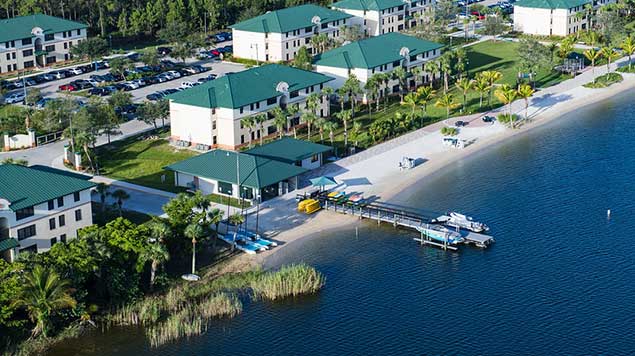

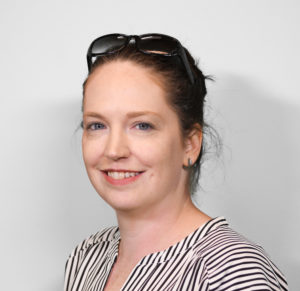 Dr. Kendra Slayton, one of CommLab’s interim co-directors and, along with Dr. Rob Griffin, one of the lead organizers behind the Conversation Hour event series, was impressed by the turnout at the September event. “We ended up with 36 people on the call. Eight of those people were [CommLab employees] and a couple of GTIAs who have worked with us in the past, so that’s twenty-something participants not including the chat moderators.”
Dr. Kendra Slayton, one of CommLab’s interim co-directors and, along with Dr. Rob Griffin, one of the lead organizers behind the Conversation Hour event series, was impressed by the turnout at the September event. “We ended up with 36 people on the call. Eight of those people were [CommLab employees] and a couple of GTIAs who have worked with us in the past, so that’s twenty-something participants not including the chat moderators.”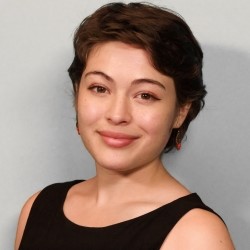 Stephanie Oliva, one of the Conversation Hour moderators, said, “We started talking about TV shows. We kind of went off on a tangent like that, and we only got food in right at the end. But we had all seen a lot of the same TV shows, and it was really cool to see everyone just get really into it. It was a lot of fun.”
Stephanie Oliva, one of the Conversation Hour moderators, said, “We started talking about TV shows. We kind of went off on a tangent like that, and we only got food in right at the end. But we had all seen a lot of the same TV shows, and it was really cool to see everyone just get really into it. It was a lot of fun.”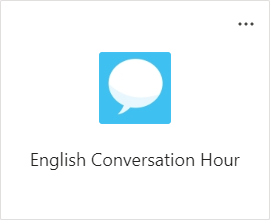 The Naugle CommLab started hosting these events in the CommLab itself in 2019, but since the pandemic they have shifted their focus to trying to hold these events virtually. While it may not be the same as a face-to-face Conversation Hour, Dr. Rob Griffin, the Naugle CommLab’s English Language Learning specialist, says the events are still hugely important, not simply for language practice, but also for mental health. He says,
The Naugle CommLab started hosting these events in the CommLab itself in 2019, but since the pandemic they have shifted their focus to trying to hold these events virtually. While it may not be the same as a face-to-face Conversation Hour, Dr. Rob Griffin, the Naugle CommLab’s English Language Learning specialist, says the events are still hugely important, not simply for language practice, but also for mental health. He says,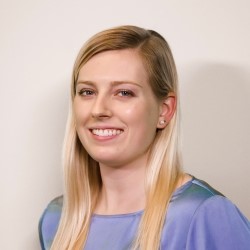 Hannah Lachmayr, a graduate student in Biology and a center assistant in the CommLab, also talks about why the Conversation Hour is especially meaningful to her:
Hannah Lachmayr, a graduate student in Biology and a center assistant in the CommLab, also talks about why the Conversation Hour is especially meaningful to her:
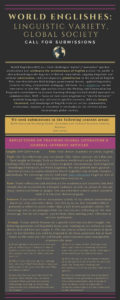
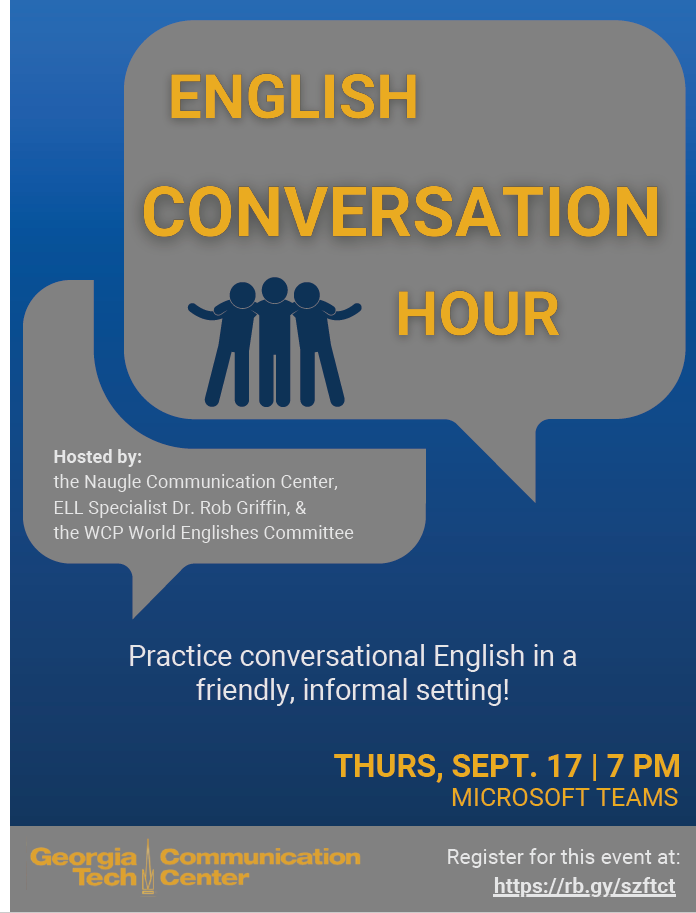
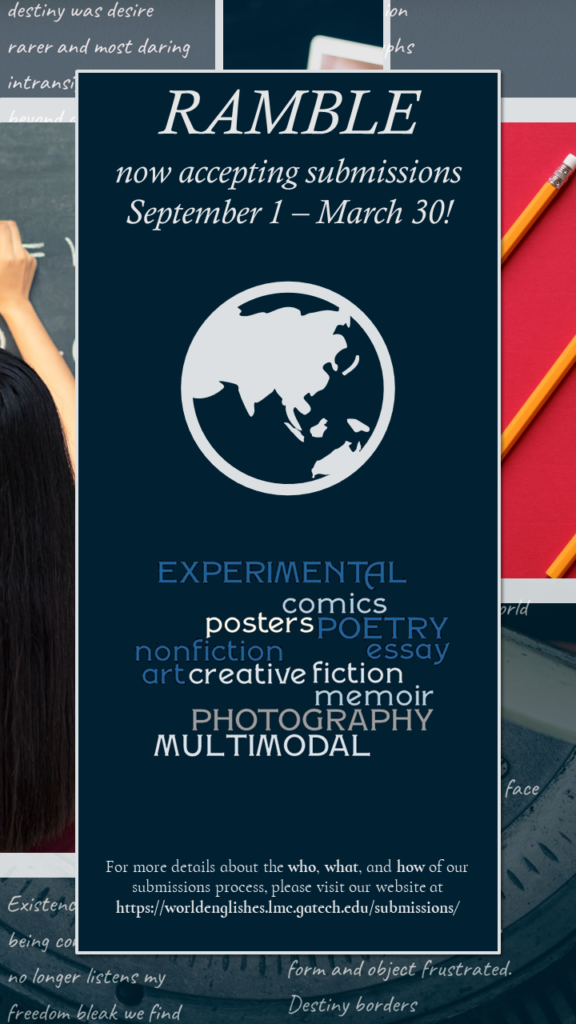
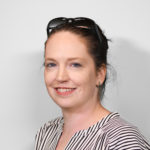 Kendra Slayton
Kendra Slayton Alok Amatya
Alok Amatya
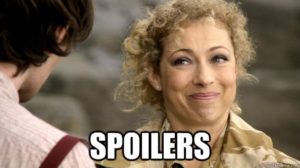 My students are the best thing, even the ones who think I’m obsessed with writing. They’re right, of course, but do they have to say that on Rate My Professors? Now, everyone’s going to know that before they even meet me!
My students are the best thing, even the ones who think I’m obsessed with writing. They’re right, of course, but do they have to say that on Rate My Professors? Now, everyone’s going to know that before they even meet me! Eric Lewis
Eric Lewis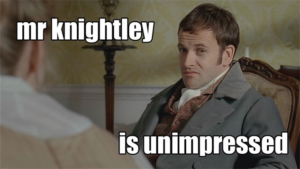 Choosing just one is really difficult, but I’ll settle on
Choosing just one is really difficult, but I’ll settle on 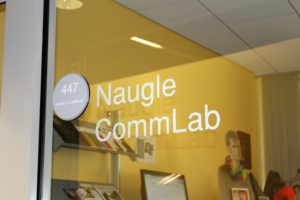 The Fall Semester is here and the Naugle CommLab is now open for online consultations! The CommLab provides both asynchronous and synchronous options for client visits, and there are plenty of times available for students to visit virtually. Whether they are working on an English 1102 multimodal project, a traditional research article, or anything in between, students can get the feedback they need on their communication projects. Instructions on how to make appointments can be found on the CommLab
The Fall Semester is here and the Naugle CommLab is now open for online consultations! The CommLab provides both asynchronous and synchronous options for client visits, and there are plenty of times available for students to visit virtually. Whether they are working on an English 1102 multimodal project, a traditional research article, or anything in between, students can get the feedback they need on their communication projects. Instructions on how to make appointments can be found on the CommLab  The Purdue Online Writing Lab (OWL) offers a series of web pages on the subject of World Englishes, including
The Purdue Online Writing Lab (OWL) offers a series of web pages on the subject of World Englishes, including 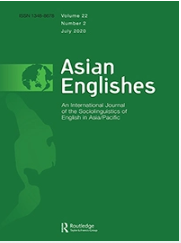 World Englishes
World Englishes